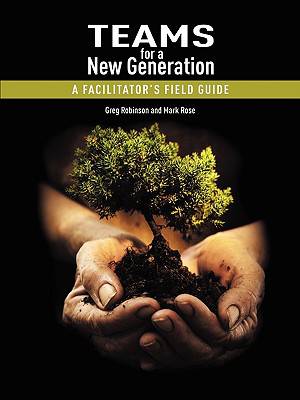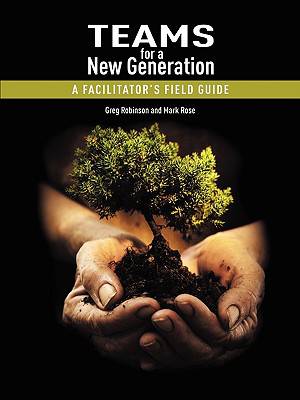
Je cadeautjes zeker op tijd in huis hebben voor de feestdagen? Kom langs in onze winkels en vind het perfecte geschenk!
- Afhalen na 1 uur in een winkel met voorraad
- Gratis thuislevering in België vanaf € 30
- Ruim aanbod met 7 miljoen producten
Je cadeautjes zeker op tijd in huis hebben voor de feestdagen? Kom langs in onze winkels en vind het perfecte geschenk!
- Afhalen na 1 uur in een winkel met voorraad
- Gratis thuislevering in België vanaf € 30
- Ruim aanbod met 7 miljoen producten
Zoeken
€ 23,45
+ 46 punten
Omschrijving
There has been much written about teams with an ongoing debate about the primacy of environment or dynamics as the most important element to effective teams. Yet the need for groups to be able to consistently tap into the collective intelligence present in the team is more and more important. This requires teams to move beyond cooperation, goodwill and consensus and be able to challenge individual and collective assumptions to see new alternatives. This book provides a simple but elegant model to understand how teams move past the mediocrity of consensus to innovative thinking that comes with Collective Learning. Collective Learning occurs when teams become aware of their assumptions and it challenges them to create a new understanding of what is real and what is important. When that happens, lasting change can come from within the team. There are four distinct abilities that must be present to provide the infrastructure for a group to learn collectively, and here is the 'how to' to dramatically increase team effectiveness. This book is focused on how a facilitator can help groups and the individuals in those groups slow down the emotional and belief processes in order to create opportunities to choose responses rather than being on automatic pilot. The purpose of the facilitator's effort is to move experiential learning beyond the traditional notion of teambuilding. Teambuilding has become a catchall phrase for helping a group get more comfortable with one another and develop trust. It is our opinion that to unlock the power of these experiential tools, facilitators must think about developing two Meta-skills - Emotional Maturity and Critical Thinking. Using experiential learning to develop the attitudes and skills to continually learn provides a real hope for creating fundamental change in the way people and groups interact.
Specificaties
Betrokkenen
- Auteur(s):
- Uitgeverij:
Inhoud
- Aantal bladzijden:
- 176
- Taal:
- Engels
Eigenschappen
- Productcode (EAN):
- 9781434324108
- Verschijningsdatum:
- 12/10/2007
- Uitvoering:
- Paperback
- Formaat:
- Trade paperback (VS)
- Afmetingen:
- 210 mm x 279 mm
- Gewicht:
- 408 g

Alleen bij Standaard Boekhandel
+ 46 punten op je klantenkaart van Standaard Boekhandel
Beoordelingen
We publiceren alleen reviews die voldoen aan de voorwaarden voor reviews. Bekijk onze voorwaarden voor reviews.









